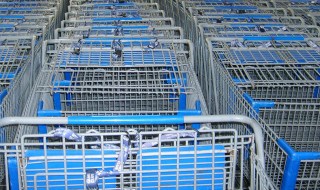Anticipating the market: Hoteliers Vs AirBnB
A few days ago we knew the news that three of the major hotel groups worldwide are raised together to fight AirBnB. The reason is obvious to all. The tourist profile is changing and more and more people get accommodation via Internet outside the hotel beds in these and other big chains. The business is in danger and, for some, the solution is not to adapt to a changing market, but to use political pressure for a rules that benefit them approved. Not unlike, moreover, to what AEDE achieved by modifying the Copyright Act here in Spain.
I had told one of the cofounders of Twitter: hotel business model’s days because it is not efficient.
But the fact is that there are other even more extreme and equally booming modalities customers also subtract them: pages to share accommodation or travel expenses by sex, with the variant that certainly can not compete …
The alternative to this was clinging to the past through legal norms nigh created ad hoc for their own benefit (and not enter into the meaning of that pressure on politicians to get something …), is that other entrepreneurs are taking: anticipate the market and generated a new business future in that reality of rent between individuals. For example, positioning itself as a provider of these individuals (cleaning, catering, logistics …). If the future is a market where sites like AirBnB absorb most of the “hotel” fee, such housing for rent will need increasing external support and services, so why not take advantage of this new niche business?
Anticipating the market: virtual clothes Tester
Photo via Pixabay
Another novelty to many should watch is the rise of virtual fitting clothes. Each time more precise and sophisticated, it will soon be possible to prove reliable and digitalemente clothes before making our purchase online. I do not think this is over short-term buying clothes in a physical location (for its social component), but that will change the rules.
While, for example, right now the same brand manufactures different models and sizes for each store in the world (or by geographic location of groups of shops), denying customers the possibility to test and buy models that the brand has not been sent to the establishments of their surroundings, at the time it is available an app really accurate and practical virtual tester, the buyer may access the entire catalog of each company and purchase products that choice. There will be no geographic boundaries. All manufacturers will be required to offer this service online manufacture and direct sale to the detriment of their physical structure of sale, and a revolution will live in the area in which brands will be to anticipate the market’s best positioned …
Anticipating the market: direct sales online (goodbye intermediaries?)
Photo via Pixabay
And it is clear that the trend is towards a scan of the sale. The brands are betting on online sales (especially for direct online sales: the manufacturer to the consumer without going through intermediaries) increasingly account for more market share, relying on marketing alternative formats to the most widespread. Amazon, Ebay or online Rakuten as large supermarkets. Websites direct sales of agricultural products. The example of Castelserás. Or large companies in the anti-aging industry, as Nu Skin.
If the small business has been gradually cornered by supermarkets (and only protectionist legislation has prevented an even greater impact), the physical sale is being hit by online sales. It is unavoidable. And all I can do is anticipate the market.







